Jabari Asim: Epithetical Distinctions
One of the poets credited with giving birth to rap music gives us another take on the most taboo racial epithet of them all.WASHINGTON — Back in the day, before rap and poetry slams, the Last Poets were the reigning princes of African-American performance poetry. They developed a loyal following with their forceful performance style, irresistible beats, and lyrics that were bracing, witty and informed all at once. Most critics credit the group with pioneering many of the styles that have come to be associated with rap.
The group, usually a trio or quartet, has involved seven men during its 38-year history. Abiodun Oyewole, one of the three original members, still performs with longtime co-members Umar Bin Hassan and Don “Babatunde” Eaton. I spoke to him as the men prepared to appear at a Martin Luther King Jr. program sponsored by Smithsonian’s National Museum of American History.
I asked Oyewole if it was fair to refer to his group as rap pioneers. Were there fundamental differences, I wondered, between what his group did in the ’60s and ’70s and what rap groups were doing today?
“It’s fair in the sense that we undressed the language,” he said. “We took the clothes off the words and gave them to you raw. We did it without permission. We were living in a raw world. The Last Poets did excite the street concept of poetry because we took it off the page and were in your face.”
But Oyewole finds the political aspect of his group’s work missing from much of the rap he hears. To him it seems as if they kept the rawness but lost the relevance. “It’s often without reference to any kind of political position. It’s OK to be raw and in your face if you’re going someplace. If we’re just hanging out on a scary-go-round, that’s not productive.”
Inevitably our conversation found its way to the N-word. Just like many of the performers who have followed in their wake, the Last Poets didn’t hesitate to use the epithet. Some of their best and most famous works refer to it, such as “Die Nigger,” “Niggers Are Untogether People” and my personal favorite, “Niggers Are Scared of Revolution.”
Is it possible to admire a poem that uses such language while condemning others that do so? I asked Oyewole to point out some distinctions.
First, he said, he might use the word in his writing, but he doesn’t use it to address his friends. In his view, the epithet “is not made for public consumption. To make it a national public word to refer to ourselves is totally out of order.”
Isn’t putting a poem on a commercially available album the same as offering the word up for public consumption? No, according to Oyewole, because the word is clearly a put-down when the Last Poets use it. “Every time we used the word, we were saying this is what we should not be. One of the major focuses of the Last Poets was to eliminate the nigger in the black person so that we could get some sincerity and some work done.”
As an example, he cited a passage from “Die Nigger” that appeared in a song by the erstwhile gangsta rap group NWA. Oyewole says the group sampled a passage recited by David Nelson, a former Last Poet who wrote the piece. “They heard it and liked what they heard but did not fulfill the responsibility of what the poem was actually outlining.”
“It gets to the point where we do this seriously intense crescendo. Everything comes to a stop, and we say, ‘Die, so black folks can take over.’ NWA stepped on that totally. They used ‘Die nigger die,’ then they stopped it and said, ‘Real niggers don’t die.’ That was total defamation of character of the poem and the poet. That really hurt.”
Another of Oyewole’s best-known poems, “Black Rage,” is both a sympathetic and critical look at being a young black man in America. Although he was born in 1948, Oyewole expresses no difficulty in relating to these youth, whom he describes as “young lions enchanted by the sound of their roar.”
“There are bombs standing/ on the corners of the cities,” he writes, “waiting to explode/ at the slightest touch/ baggy shadow street boys/ stand cocked ready to fire.”
“When I wrote that particular part, I’m not bashing my boys on the street corner,” he said. “That’s me out there. I know what they have to offer. I know who I am and I know who they really are.”
Jabari Asim’s e-mail address is asimj(at symbol)washpost.com.
Copyright 2007, The Washington Post Writers Group
Your support matters…Independent journalism is under threat and overshadowed by heavily funded mainstream media.
You can help level the playing field. Become a member.
Your tax-deductible contribution keeps us digging beneath the headlines to give you thought-provoking, investigative reporting and analysis that unearths what's really happening- without compromise.
Give today to support our courageous, independent journalists.
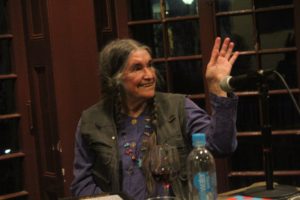
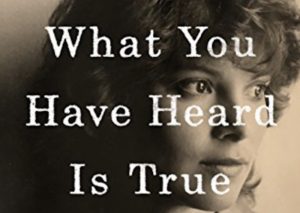
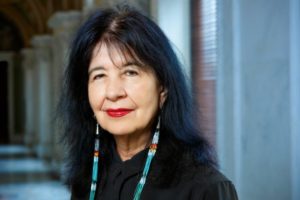
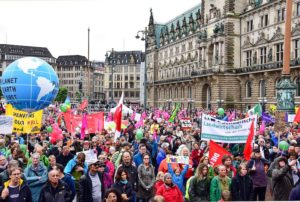
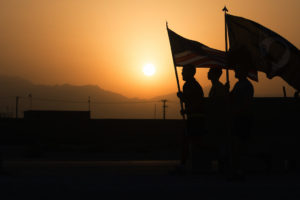
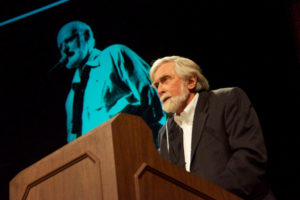
You need to be a supporter to comment.
There are currently no responses to this article.
Be the first to respond.